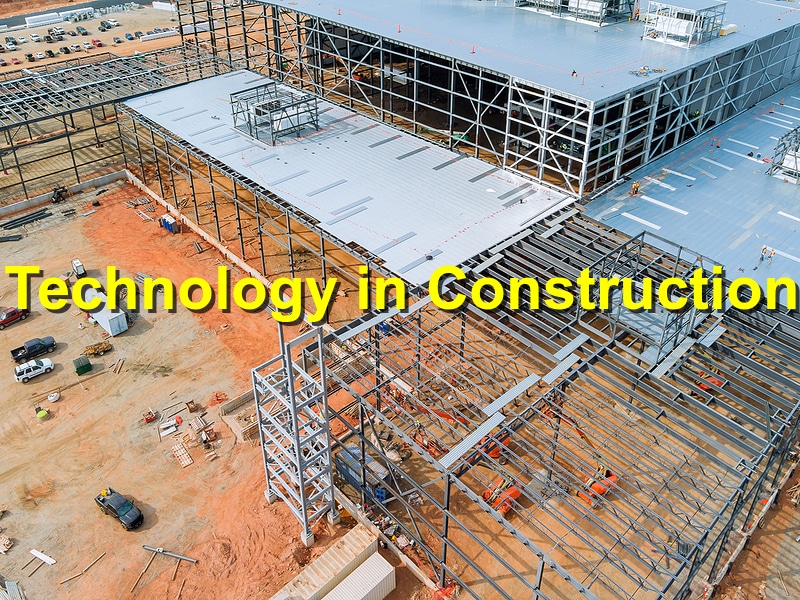In the realm of construction, technology has become an indispensable force driving innovation, efficiency, and sustainability. Its role in modern construction is multi-faceted, influencing various aspects of the industry:
1. Building Information Modeling (BIM): BIM technology has revolutionized the planning, design, and construction phases. It enables comprehensive 3D modeling, facilitating better visualization, collaboration, and coordination among stakeholders.
2. Prefabrication and Modular Construction: Technological advancements have fueled the growth of prefabrication and modular construction techniques. These methods leverage automation, robotics, and precise manufacturing to construct building components off-site, enhancing speed, quality, and cost-efficiency.
3. Drones and Aerial Imaging: Drones equipped with high-resolution cameras offer aerial views for site surveying, progress tracking, and inspections. They provide real-time data, improving safety, monitoring, and decision-making on construction sites.
4. Robotics and Automation: The integration of robotics and automation streamlines various construction tasks, from bricklaying to excavation. Robots enhance precision, accelerate processes, and mitigate risks associated with hazardous or repetitive work.
5. Sustainable Construction Practices: Technology plays a pivotal role in promoting sustainability. Innovations like smart sensors, energy-efficient materials, and renewable energy integration contribute to eco-friendly construction practices and green building certifications.
6. Internet of Things (IoT) and Smart Buildings: IoT-enabled devices and sensors in smart buildings gather data on energy usage, occupancy patterns, and maintenance needs. This data-driven approach optimizes building performance, enhances comfort, and reduces operational costs.
7. Advanced Materials and 3D Printing: Advancements in materials science, such as stronger and lighter materials, and the emergence of 3D printing technology, have introduced innovative construction methods. 3D printing allows for rapid prototyping and construction of complex structures with reduced material waste.
8. Augmented Reality (AR) and Virtual Reality (VR): AR and VR technologies aid in visualizing designs, offering immersive experiences for architects, engineers, and clients. These tools facilitate better design understanding, project presentations, and virtual walkthroughs before actual construction begins.
9. Cloud Computing and Project Management Software: Cloud-based project management tools enable real-time collaboration, document sharing, and centralized project data storage. These platforms enhance communication, efficiency, and transparency among project teams.
10. Artificial Intelligence (AI) and Predictive Analytics: AI-driven algorithms and predictive analytics analyze vast amounts of construction data to optimize project schedules, budgeting, and risk management. This technology aids in forecasting potential issues and making data-driven decisions.
11. Safety and Wearable Technology: Wearable technology, such as smart helmets and vests equipped with sensors, enhances worker safety by monitoring vital signs, detecting hazards, and issuing alerts for potential accidents.
In essence, technology’s role in modern construction extends far beyond tools and equipment—it’s a catalyst for transformation. Embracing these technological advancements is pivotal for the construction industry to improve efficiency, sustainability, safety, and overall project outcomes in the ever-evolving landscape of building and infrastructure development.
References: buildersonline, linkedin




